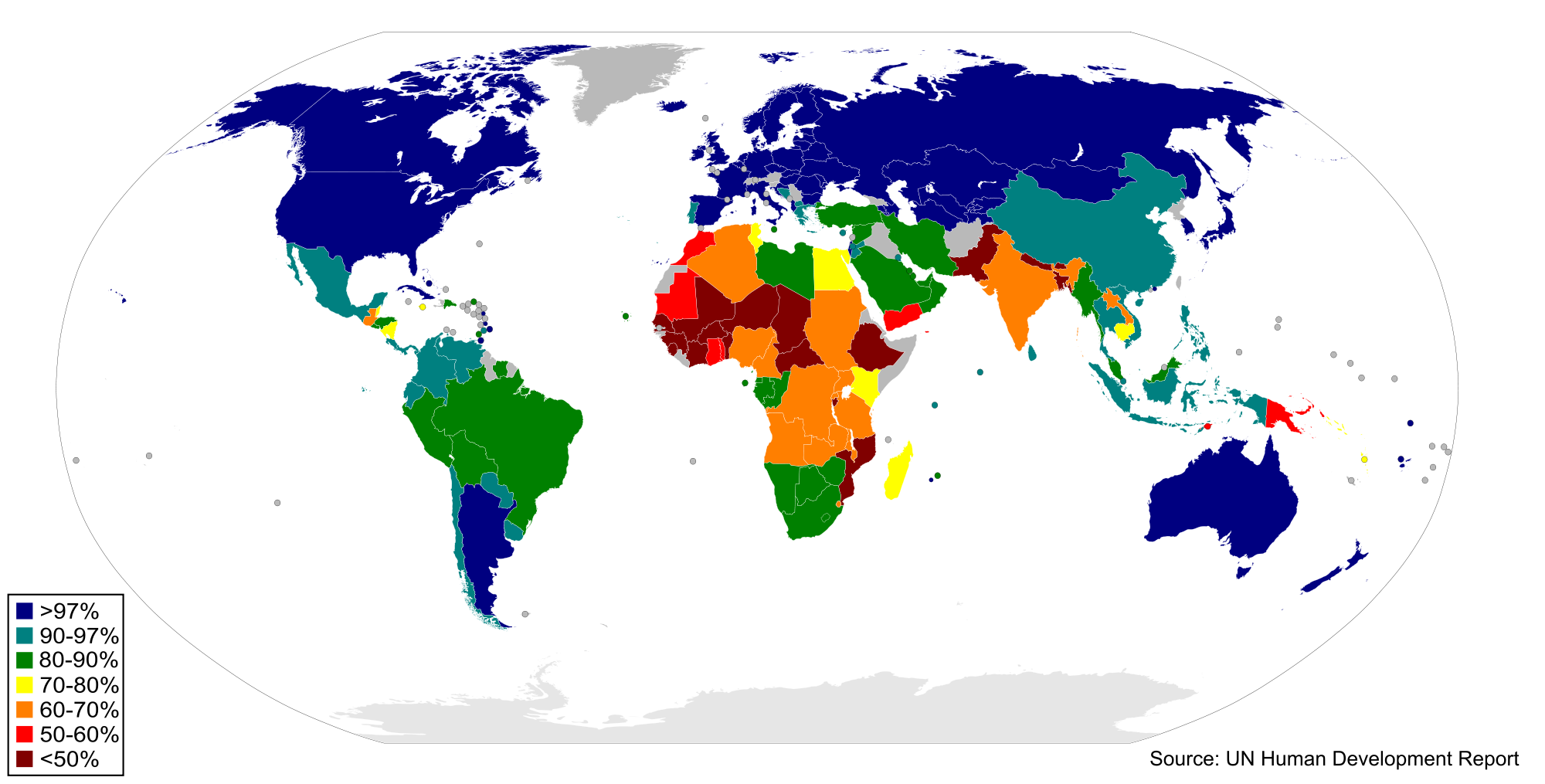The Importance of Being Literate in the 21st Century
As you would expect from a blog that is dedicated to all things language (and travel), there are a few assumptions we make about our readership. We assume you are interested in both languages and travel. We assume that we have said something in our article titles that was interesting enough to entice you in (thank you, SEO training!). We also, and forgive us if this is going a step too far, assume that you can, in fact, read.
Before you take offence and glare indignantly at us through the screen, hear us out.
According to data collected and summarised by UNESCO in 2015, there are around 758 million adults across the globe that are illiterate. That is an enormous amount of people missing out on the joy of turning a page to discover strange, exotic new worlds, of people unable to read the titles of medicines they need to buy, of people relying on their literate peers to steer them through so many of the obstacles this life presents if you cannot do something that so many of us take for granted.
Let’s take a further look at illiteracy, some of its causes, and what is being done to help those wanting to learn to read and write.
Statistics…
World Literacy Map via Wikimedia
We are all more than just a number, however, having some data to work from will give us a firm basis when we start our investigation in what it means to be illiterate. 758 million adults and 115 millions youths (aged 15 to 24) are considered illiterate worldwide. Women make up the larger majority of those in both, representing 63% and 59% respectively in both groups.
Since 2000 world literacy rates have actually improved to around 85%, but as is to be expected, the data is skewed in favour of what some refer to as more developed countries; sub-Saharan African and South and West Asia have some of the lowest literacy rates, and in countries like Afghanistan, Mali and Senegal, the adult literacy rate is below 50%.
Surprisingly…
Although less than one percent of the population of both the United Kingdom and the United States are considered illiterate, that equates to roughly 5.2 million and 32 million people respectively who would be unable to pass high school or secondary school aged exams. It does not seem possible that these nations that are considered such powerhouses by the rest of the world would still have people lacking basic reading and writing skills.

Photo via Wikimedia
According to the Organization for Economic Co-operation and Development (OECD), literacy rates amongst UK’s 16 to 19 year olds is the lowest of all ‘developed’ countries, and at an even younger age, there is fear of a widening gender gap favouring literacy skills of girls over boys, with one in four boys considered ‘behind’ in learning by the age of five compared with only 14% of their female peers.
Andorra, Finland, Greenland, Liechtenstein, Luxembourg and Norway are the only countries in the world that boast of a 100% literacy rate. The country with the lowest literacy rate, at just 27% of the population being able to get by with basic reading and writing, is South Sudan.
Learning a new language? Check out our free placement test to see how your level measures up!
Cause and effect
Illiteracy among adults is attributed to a number of sources, including their own parents having little schooling, a lack of literature to read in the home whilst growing up, not completing secondary education, difficult living conditions including poverty, learning disabilities such as dyslexia, and a shift in the job market where manual work that required little reading ability has been replaced by service sector and other literacy-dependent industries, meaning there are adults aged 45 and over in such manual professions have never had the need to learn to be literate.
Among children, the reasons for illiteracy are both the same and quite different depending on where we are looking. Child labour, poor attitudes towards learning, geographical factors, disabilities, emigration of educated individuals and inadequate facilities are some of the factors contributing to childhood illiteracy across the world.
Consequences of illiteracy can be viewed both at the individual and a social level. For individuals there is a limited ability to obtain and understand information, employment rates are higher resulting in lower income and lower quality jobs, there is reduced access to professional development and lifelong learning, and individuals who are illiterate tend to have low self-esteem. There is even an impact on health, through misuse of medication or workplace accidents caused by not understanding written instructions.
For society, a lack of adequately qualified personnel means many work positions remain vacant. The higher the number of people considered illiterate in a country, the slower the overall long-term GDP growth rate. Difficulty understanding societal issues means lower levels of community integration and civic participation, and individuals without adequate literacy levels cannot contribute to society on a full and equal basis.
Changes

Photo via Pixabay
Education For All (EFA) is a global movement aiming to meet the learning needs of children, youths and adults. It set a target of a 50% improvement in adult literacy for 2015: only one third of the world’s countries actually achieved this figure but the efforts made to make such changes will be long-lasting.
The World Literacy Foundation, a charity based out of the UK, US and Australia, aiming to reduce crime, increase employment opportunities, enhance health, and balance gender equality through projects targeted at increasing youth literacy worldwide.
UNESCO’s World Literacy Day has been celebrated on September 8th since 1965, and aims ‘to highlight the importance of literacy to individuals, communities and societies’.
In short, literacy is important, and we recognise literacy as important; we cannot imagine a world we wouldn’t be able to pick up our favourite books and leave reality for a little while. More than that, literacy is about a lot more than just simply reading and writing: there is an entire level of communication missing for those who are illiterate. And as people that love to communicate, that thought makes us very sad indeed.



